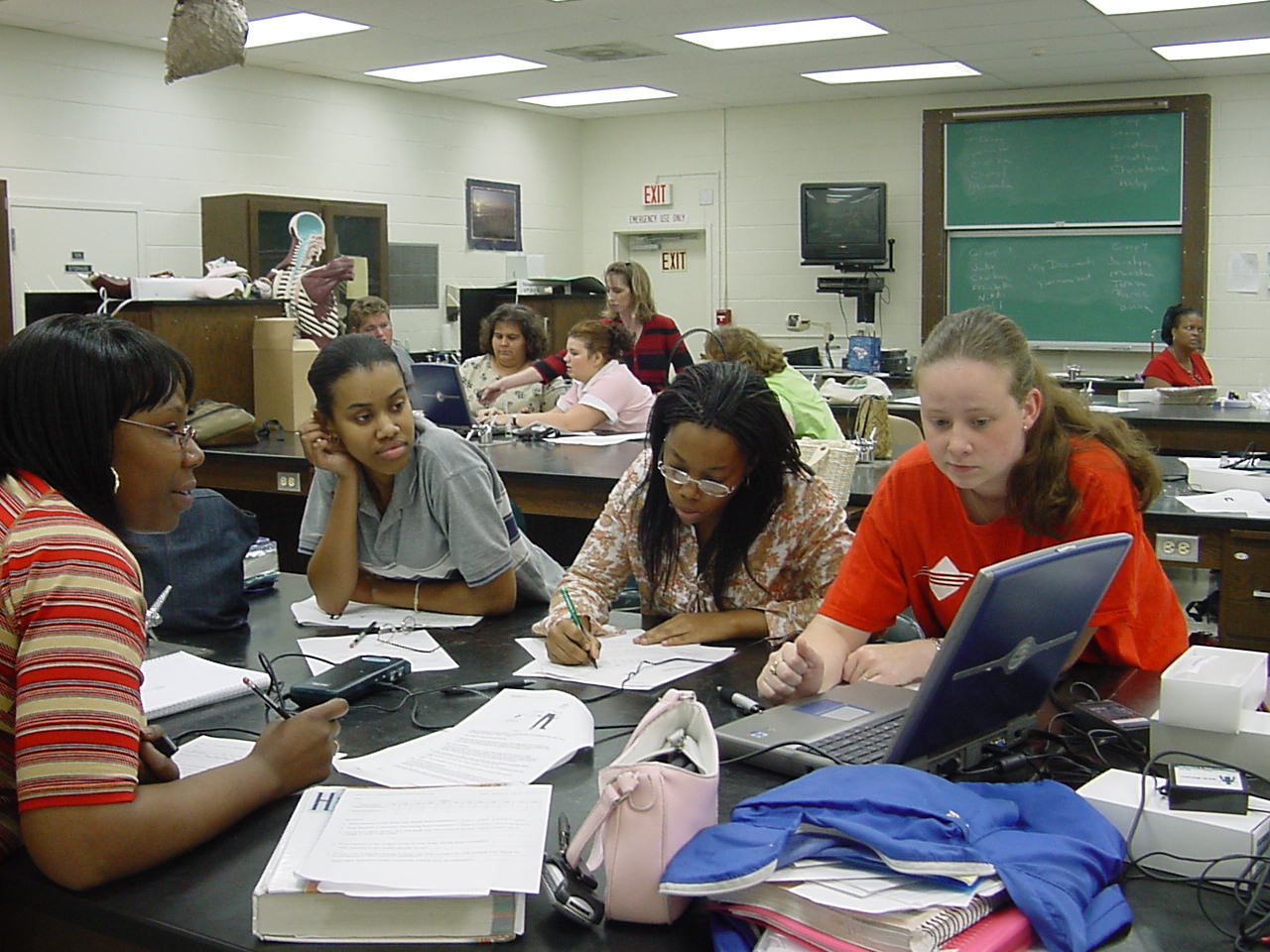Biological Sciences offered at Northeastern Technical
College include the following:
BIO
101: Biological Science I
BIO 210:
Anatomy & Physiology I
BIO
102: Biological Science II
BIO 211:
Anatomy & Physiology II
BIO
112: Basic Anatomy & Physiology
BIO 225: Microbiology
Bridges Students Attend SC Academy of Science meeting in Charleston, SC
April 16, 2004 
|
BIO 102 lab at NC Zoo 2/20/04

|
BIO 211 using cardiovascular monitoring

|
BIO 211 lab

|
BIO 101: Biological
Science I (4 credit hours)
This course is the first of a sequence introducing biology. Topics
include the scientific method, basic biochemistry, cell structure and function,
cell physiology, cell reproduction and development, Mendelian genetics,
population genetics, natural selection, evolution, and ecology. |
BIO
102: Biological Science II (4 credit hours)
This course is a continuation of introductory biology which includes
classification of organisms and structural and functional considerations
of all kingdoms (particularly major phyla as well as viruses). Vertebrate
animals and vascular plants are emphasized.
Prerequisite: BIO 101 with a grade of C or better or permission
of instructor |
BIO 112:
Basic Anatomy & Physiology (4 credit hours)
This course is a basic integrated study of the structure and function
of the human body. For Practical Nursing students and typically only
offered in spring terms. |
BIO
210: Anatomy & Physiology I (4 credit hours)
This is the first in a sequence of courses designed for allied health
transfer students. This course covers an introduction to the systems
of the body, biochemistry, cells, tissues, skin, bones, and muscles. |
BIO
211: Anatomy & Physiology II (4 credit hours)
This is a continuation of BIO 210 including intensive coverage of the
the nervous, respiratory, digestion, cardiovascular, lymphatic, urinary,
endocrine, and reproductive systems.
Prerequisite: BIO 210 with a grade of C or better |
BIO 225:
Microbiology (4 credit hours)
This is a detailed study of microbiology as it relates to infection
and the disease processes of the body. Topics include immunity, epidemiology,
medically important microorganisms, and diagnostic procedures for identification.
Prerequisite: BIO 210 or BIO 101 with grade of C or better
BACK TO TOP
